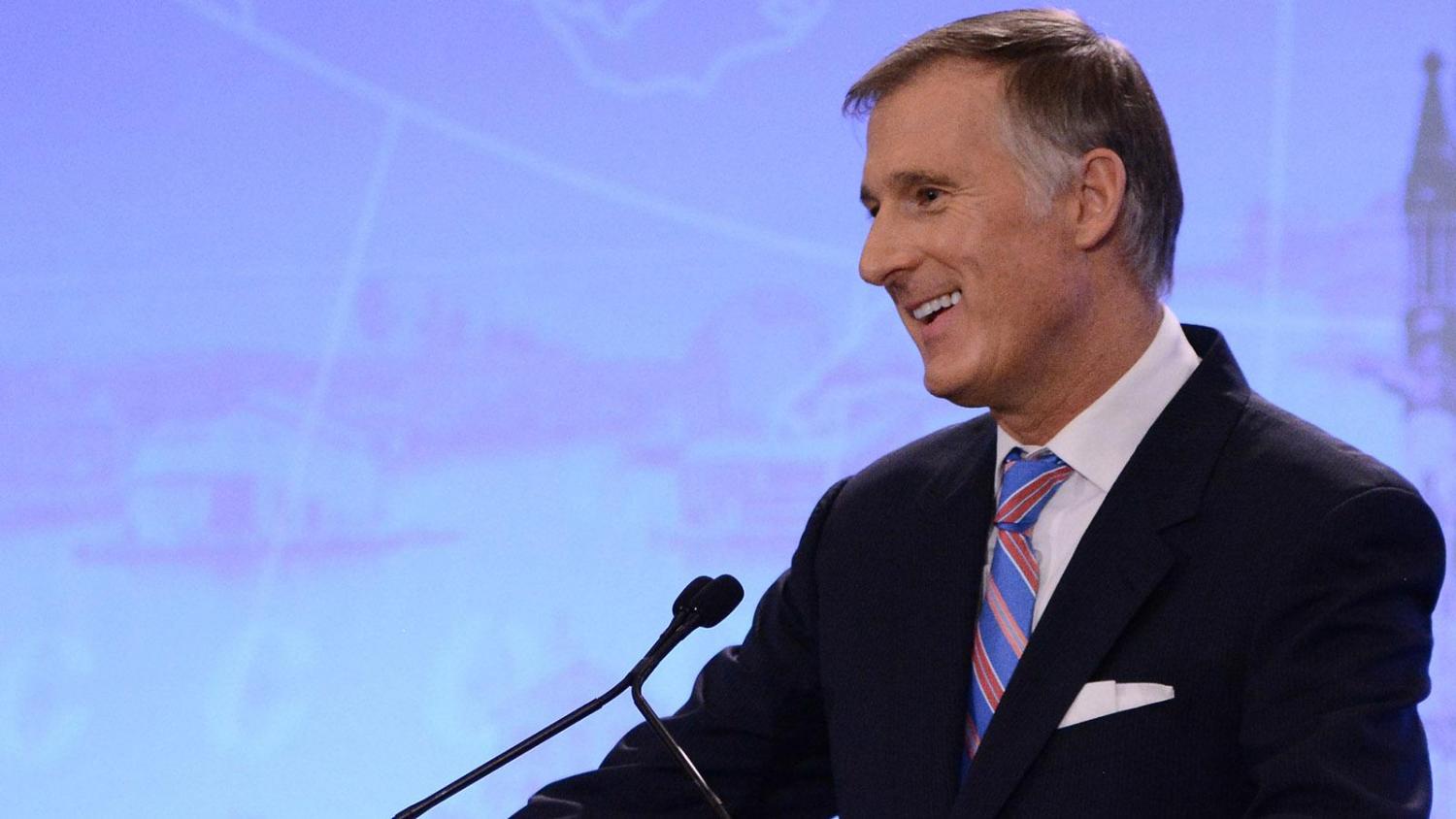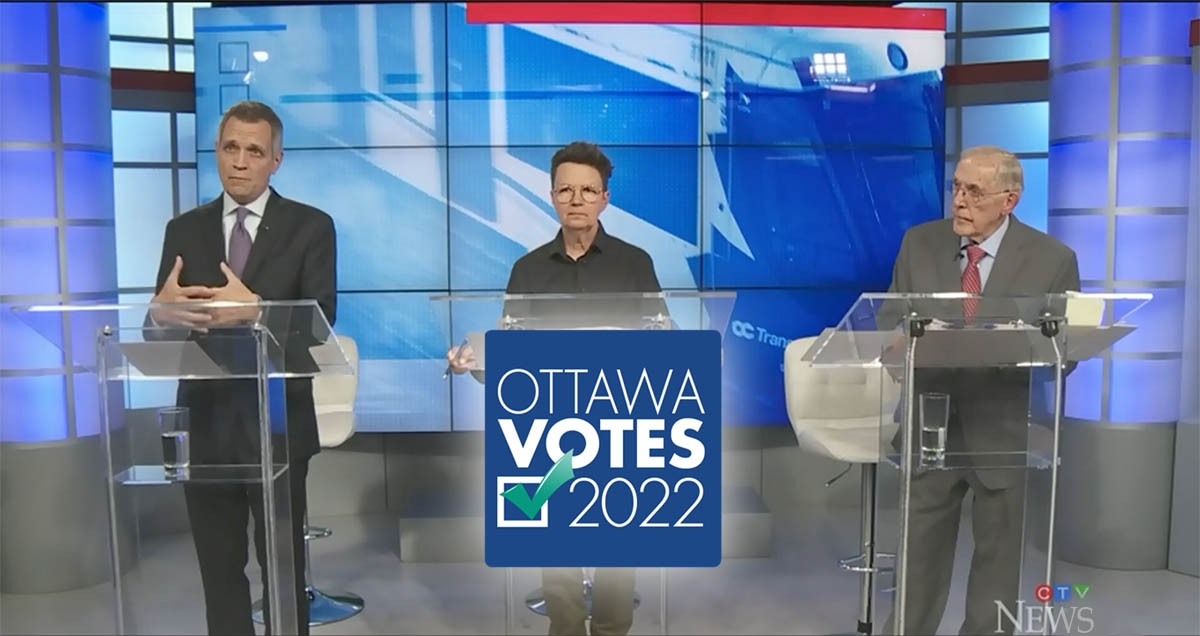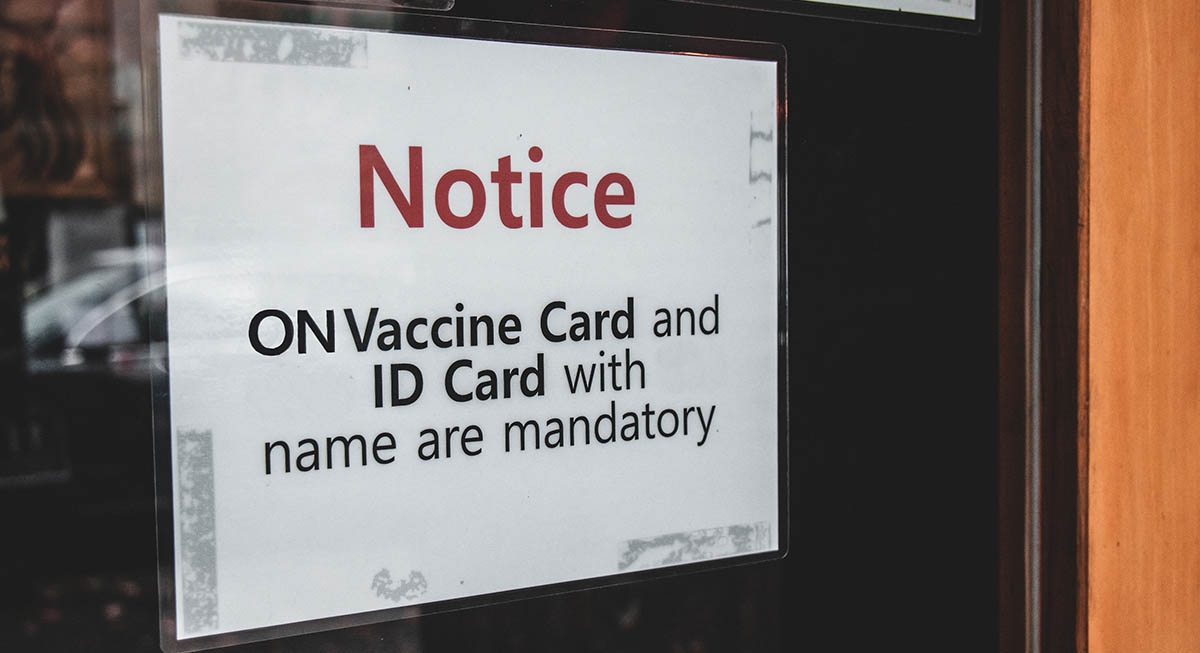
Prime Minister Maxime Bernier? Pourquoi Pas?
Jean Chretien used to say that the biggest asset any politician has is their ability to be underestimated. He would know. In the early 1990s, Chretien was summarily dismissed by his critics and many members of the national press gallery as “yesterday’s man”. The “pundits” chimed that he would never get the votes required in Quebec to beat the Tories. We all know how that ended. Dennis Mills, who served as the popular MP for the downtown riding of Toronto-Danforth for 16 years and who earlier in his career was an advisor to the late great Prime Minister Pierre Elliot Trudeau said that Trudeau’s greatest gift was his intelligence and authenticity. So, if the bar is set by those measurements, the Justin Trudeau Liberal government should be very concerned if Maxime Bernier wins the Conservative leadership race later this month. The friendly, affable, and straight shooting Bernier is a former cabinet minister, businessman and lawyer who has been the Member of Parliament for the riding of Beauce, Quebec since 2006.
Bernier is also very popular in his home province and across the country. He will provide a dramatic contrast to Prime Minister Justin Trudeau. His story is well known. A populist, he is more of a libertarian conservative than a blue tory or social conservative. He believes in less government – not more – and is calling for dramatic changes that he says will shake up the federation, unleashing more free market forces to challenge Canada’s corporate and privileged monopolies in the airline, telecom, agriculture and financial services sector.
Bernier’s straight forward approach to dealing with serious issues and his belief that balanced budgets and surpluses are good, while debt and interest payments on debt are generally bad and are to be avoided will be a strong counterpoint to Prime Minister Trudeau’s policies. They are the antithesis of large government spending and taking on long term debt to finance public works projects and social infrastructure in the near term.
Bernier has significant government and cabinet experience.Former Prime Minister Stephen Harper appointed him Minister of Industry in February 2006. Professor Richard J. Schultz from McGill University lauded Bernier’s attempt to deregulate the telecommunications monopoly in Canada, calling him the best Industry Minister in 30 years. Bernier’s efforts to bring competition to telecoms in Canada were partially successful, but halted when the Conservatives were voted out of office. Today, the Canadian telecom cabal of Bell, Rogers and Telus, remain the merchants of monopoly and continue to ravish Canadians with rates and fee excesses that would make a capitalist blush. The Trudeau government has surrendered to their excesses. Bernier says if elected PM he will get the CRTC out of the telecom industry, and allow foreign competition in Canada.
After a successful run at Industry Canada, Bernier was appointed to the high profile position of Minister of Foreign Affairs in 2007. He was actively involved in Canada’s Afghanistan mission and was credited for the competence he brought to the file. In April 2008, Bernier inadvertently left sensitive government documents at a girlfriend’s home. It was later uncovered that the girlfriend had previous links to the Hell’s Angels. The documents were returned to government but not before the opposition and media learned of the lapse in judgment. Bernier took responsibility for the incident and Prime Minister Stephen Harper regrettably accepted his resignation. Bernier sat on the backbenches for three years, returning to Cabinet as Minister of State (Small Business and Tourism) in May 2011. His responsibilities were expanded in 2013 to Minister of State (Small Business and Tourism and Agriculture).In October 2015 he returned to the Opposition benches following the Harper Government's defeat.
Maxime Bernier entered the Conservative Leadership race in 2016 and has been the front runner from the beginning. He has signed up more new members and raised more funds than any of the other candidates. His populist appeal is undeniable and his straight forward and candid approach to issues has proven popular and refreshing with many Conservatives. Bernier is a guy who knows who he is and what he stands for. He doesn’t speak in platitudes or pinch issues to avoid answering questions. He freely admits that as a younger man he had separatist leanings, like many in Quebec during those times. What is especially intriguing about Bernier are his ideas to improve Canada. He has an extensive,substantive and serious policy platform, and he says is always thinking about ways to improve Canada and to bring more economic opportunities to Canadians.
One of his strengths is his candour and friendly demeanor.The day we spoke, his fellow Conservative MPs were spending much of their time in the House of Commons attacking the embattled Defense Minister, Harjit Sajjan, over his comments regarding being the architect of Operation Medusa in Afghanistan. Many of the MPs, including Conservative Defence Critic James Bevan, were particularly vicious and nasty in their comments towards Sajjan, a former decorated soldier who was wounded in battle and who lost friends in the war in Afghanistan. I asked Bernier if he thought Sajjan should resign to which he immediately responded, “Yes”. When I asked why,he said, “he must assume responsibility for his actions and resign. You know, I went through something like that and I resigned and I learned from it. When you resign it gives you time to reflect on what happened and the mistake you made.I’m a better person for it. I’m sure he (Sajjan) will be back. He is smart guy, a good man.”
And therein lies the difference between Bernier and many of his contenders in the race. Even though his agenda is completely different from the current Liberal government, he never once took a personal shot at anyone, including the Prime Minister or Ministers. It is the same for contenders in the Conservative leadership. He always takes the high road. He believes that for a serious mistake you accept responsibility, do penance and you can get a second chance.No need to be mean spirited. It's refreshing in a political environment that has become increasingly toxic.
We move on to other issues. I ask him about the Dairy Marketing Board of Canada and supply side management issue in Canada which is a key issue for the Americans who want to re-write NAFTA. Bernier says as PM he would abolish the boards. “Canadian families will save $500 dollars a year in food bills when we abolish them. There are 19,000 Canadians who get this privilege of being protected by these boards, but 35 million Canadians consumers are ready to see them go. They are a special interest group which forces families to pay more for their food,sometimes twice as much for milk and cheese, eggs. It’s the same for chicken and the others. There are many models for phasing them out. Australia did it successfully.” (The Australian model had a gradual phase-out and compensation for farmers).
Bernier has an activist policy program that will reshape Canada. He wants to simplify the tax system and make it more straightforward and fair. (This is an idea first presented by Liberal MP Dennis Mills in the 1990s and later partially embraced by the Reform Party).
Bernier says he will scrap the Trudeau carbon tax. “Canadians all support cleaner air and water. But a carbon tax won’t do anything to protect our environment. All it will do is increase costs on business and kill jobs. Increasing the price of fuel and the price of electricity will put the price of everything up. It will only serve to take money out of the pockets of Canadians. It’s unethical. It must be stopped since a carbon tax will cost the average family $2,500 per year, including by increasing gas prices by 11 cents per litre.”
Bernier says he will end all barriers to trade between provinces. “Interprovincial trade barriers cost Canada’s economy as much as $130 billion every year. It is unfair to have problems finding work in another province because they need to jump through hoops to have their skills recognized.”
Bernier will permanently expand the accelerated capital cost allowance to all sectors. He says the Accelerated Capital Cost Allowance has been a great success story, allowing certain businesses to write off investments against taxable income more rapidly. "Making this program permanent and applying it to all sectors will put money in the pockets of every single business owner. It will allow for new growth and new investment. It will increase prosperity."
Bernier says he will eliminate all corporate welfare. He believes that the free market can make decisions better than Ottawa bureaucrats and he says he will stop the practice of throwing taxpayer dollars into failing and mismanaged companies. So, one can expect that Bombardier will not be able to fleece taxpayers for low interest to no interest loans for $387 million dollars from the federal government and then turn around weeks later and give their executive team outrageous and unearned bonuses at taxpayers’ expense. These are the types of bonuses usually only approved and given to Ontario Hydro One executives for non-performance (and always with the approval and consent of the Ontario Liberal government).
Bernier will drop corporate income tax from 15% to 10%. He says that Canada’s combined corporate income tax rate is 15th highest in the OECD and he will bring it down to 10%. He claims this will increase the after-tax return on investment, and encourage businesses to invest more, “creating jobs and unleashing Canada’s productive forces”.
Bernier says he is committed to decentralizing and shrinking the amount of government in our lives. To get there he will end Inter-provincial Trade Barriers by using article 121 of the Constitution, which states that inter-provincial trade is under federal jurisdiction. He will establish an Economic Charter of Rights as well as create an Economic Freedom Commission with the power to take provinces to court when their regulations infringe upon a person’s freedom. Bernier believes property rights should be respected. He says he will put an end to the government policies that basically bribe special interest groups with ineffective boutique tax credits. Any tax credit that does not serve a concrete public policy purpose would be abolished by the Bernier government. He says the best way to ensure that businesses can succeed is to get needless regulation out of the way and to cut corporate taxes. Bernier will balance the budget within two years of taking power. He says it is important to present a balanced budget within two years of taking office and to commit to only running balanced budgets. He says his government will legislate a debt repayment schedule and stick to it. In what will probably prove to be a more controversial policy, Bernier also wants to get Ottawa out of health care, and transfer tax points to the provinces. He says that by transferring tax points to the provinces and by ending Ottawa interference in health care innovation and service delivery, he can create accountability. He maintains that private sector involvement in healthcare will bring innovation.
Bernier will privatize Canada Post and eliminate its monopoly on letter mail. “Postal services should operate in a competitive environment, just like any other sector of the economy”.
Bernier is committed to lowering air travel costs by privatizing airports and opening the sector to more competition. “Privatizing the airports, and running them like businesses instead of government cash cows, will help reduce costs. It is also important to open the sector to more competition by lowering foreign ownership requirements and pursuing open skies agreements with other countries”. In real terms, this means that international carriers would be allowed to provide service on Canadian domestic routes. He says for this to work, "Canadian carriers would have to be given the same opportunity in foreign countries".
Bernier will abolish the Capital Gains Tax "to make sure you never pay tax on any of your savings. It will give our entrepreneurs access to a larger pool of capital”.
Bernier’s pledge to cut federal tax to 15% on income between $15,001 and $100,000, and 25% tax rate on income above $100,000 also harkens back to the simple tax or single tax theory posited by economist in the 1990s – a view still popular today, but never implemented in Canada. Bernier's promise to have no federal tax on first $15,000 earned, giving everyone who earns that much an immediate $529 tax cut could prove popular with young people and lower wage income earners seeking to improve their economic condition.
Bernier has developed a policy statement called STANDING UP FOR RURAL CANADIANS that commits him to the following:
Reducing grain commission fees. “It is important that an independent third-party such as the Commission do the grading before the grain is sold. The farmers support the Commission and don't object to the levy”. Bernier says he will eliminate the farm killing carbon tax: “I will oppose it every step of the way, and as Prime Minister I will repeal it”.
Abolishing the maple syrup cartel. He is not fazed by the fact that cartels in his home province like the Federation of Quebec Maple Syrup Producers block the product from being sold across the country. Bernier says, “this is unacceptable. All barriers to internal free trade must be removed”.
On firearms he will “stop the harassment of law-abiding gun owners,” saying that “the Firearms Act should be replaced with effective legislation that protects property rights and cracks down on dangerous criminals.”
He would “spur agriculture growth through increased exports by ratifying the Trans-Pacific Partnership, expediting Canada-India Free Trade negotiations, and immediately and aggressively launching free trade negotiations with China which will open new export opportunities for Canada’s high quality agricultural products”. He notes that a Canada–China Free Trade Agreement would expand Canadian exports by nearly $8 billion annually and increase Canadian household income by nearly $6 billion annually, creating 25,000 well-paying Canadian jobs.
In a specific commitment to farmers, Bernier says he will extend the accelerated capital cost allowance rates for agriculture and make the accelerated capital cost allowance program permanent. He says by applying it to all sectors, including agriculture, it will put money in the pockets of farmers and allow farms to grow with new equipment, increasing prosperity. He will also reduce the federal farm tax from 15% to 10%: keeping farmers competitive and able to continue providing quality Canadian products to consumers. He will phase out supply management. “Phasing out supply management and ensuring that those in supply managed sectors can transition is the right thing to do. I would follow the Australian model, with a gradual phase-out and compensation for farmers”.
Maxine Bernier has very specific views on immigration. He says Canada’s focus on recruiting immigrants with specialized skills who can contribute to our economy should be a priority. “Immigration should answer the needs of sectors where there is a scarcity of manpower with specialized skills; and in more general terms contribute to increasing the number of younger workers in a society that is fast aging. It shouldn't be used as a social engineering program for ideological purposes.” He wants to reduce the total number of immigrants to 250,000 per year and increase resources for CSIS, the RCMP, and Canadian immigration officials. “I would increase resources for CSIS, the RCMP and Canadian Immigration and Citizenship to do background checks on all classes of immigrants, including more face-to-face interviews if deemed necessary”. Bernier also believes that Immigration must not be used as a tool to forcibly change the cultural character and social fabric of Canada. “Our immigration policy should not aim to forcibly change the cultural character and social fabric of Canada, as radical proponents of multiculturalism want”. Bernier will end Canada’s reliance on the United Nations for refugee selection. “I would stop our reliance on the United Nations for refugee selection. We should rely instead on private sponsorship, including by faith-based organizations”.
Expect a very different approach by a “Prime Minister Bernier “on Foreign Policy and Security. Bernier says Canadian Foreign policy must not focus on pleasing the dysfunctional United Nations. Instead, he claims, “I will ensure our country’s foreign policy will be refocused on the security and prosperity of Canadians”
Bernier says he will promote free-market policies, liberalized trade, and private property rights around the world. “Countries such as China, India, Vietnam and many others that are fast growing out of poverty did so because they got rid of their communist and socialist economic policies. There is a direct link between the level of economic freedom and the level of development. They got richer because they adopted free-market policies, liberalized trade and private property rights, even if only imperfectly. My government will promote these ideas at every opportunity”. Bernier says he will review the billions spent on foreign aid, and phase out all aid with no moral or economic efficiency argument. “We will not send billions to other countries to boost their economies while many Canadians, including some First Nations communities, have levels of poverty comparable to third world countries”. He will also liberalize trade with as many countries and regions as possible. “My foreign policy will be focused on liberalizing trade with as many countries and regions of the world as possible. This is not only the best way to ensure our prosperity, but also to help other countries develop and get richer, and to ensure a more peaceful world”. Bernier will be tough on terrorism and says he will work with allies to defend Canada's security. “I will continue to work closely with our allies to ensure peace and security, especially against radical Islamic terrorism. We will only get involved in foreign conflicts when we have a clear strategic interest in doing so, and when the security of Canadians is directly impacted”.
The Conservative Party of Canada has an important decision to make on May 27th. Michael Chong is really a Red Try and more red, than Tory. Kelly Leitch is both embarrassing and nuts. Chris Alexander has proven multiple times he is not a leader, both as Immigration Minister when he shamefully shrunk from doing the right thing on the Syrian refugee crisis and later, in the Conservative leadership race when he did not stare down an agitated right wing Conservative Trumpian type crowd nastily yelling "lock her up" in reference to Alberta NDP Premier Notley. Alexander just stood there and smiled, later saying he felt "uncomfortable". Ugh. Enuff said. Then there is Erin O'Toole. Smart guy but not exactly charismatic.Rick Peterson is a very impressive, fluently bilingual western Canadian businessman who has a profile issue. He could be the ultimate compromise candidate. But a compromise could be a bad thing when you have to take on a popular sitting Liberal Prime Minister. Many Tory insiders believe it is better to be daring and to GO BIG and GO HOME! Steven Blainey, Andrew Scheer and Brad Trost are rather beige and boring compared to Bernier's colour and boldness. Andrew Saxton and Lisa Raitt are certainly competent but will be hard pressed to lead in a way that would defeat the Trudeau Liberals. Raitt unfortunately is not bilingual. Pierre Lemieux and Deepak Obhrai are impressive but not within reach of the brass ring. Obhrai has been a master at keeping everyone in the race civil and he has a wonderful sense of humour, something that is helpful to the Tories who were correctly labeled with the moniker "the party that fun forgot" during the Harper years.
All that to say, my money is on Bernier. He would be a compelling national figure and a fine Prime Minister.












